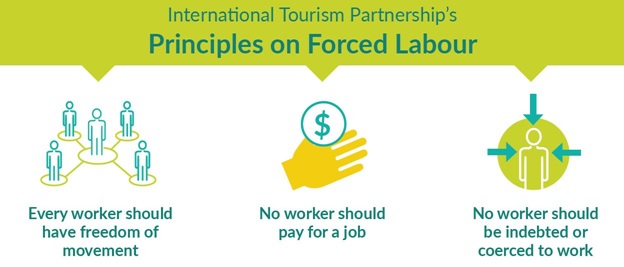Rising disposable incomes and falling relative costs of travel worldwide have led to a boom for the tourism and hospitality sectors. Combined, they are one of the world’s largest economic sectors, accounting for a total of 10.4% of global GDP and 9.9% of total employment in 2017. This growth is evident across Asia, where rising middle classes particularly in China and Vietnam have contributed significantly to regional tourism. The APAC region accounted for 37% of the world’s tourism expenditure, and saw the fastest growth in international arrivals averaging a 7% annual increase. Tourism represents a significant source of GDP generation and employment across Asia, in particular for Thailand, the Philippines and the Maldives. The World Tourism Organization (UNWTO) strongly believes that the tourism and hospitality sectors can play a positive role in development and contribute to achieving the SDGs.
The growing tourism and hospitality sectors have cast a spotlight on sustainable tourism in terms of influencing the policies utilized by both companies and governments, and in guiding the behaviour of travellers. Sustainable tourism involves “tourism that takes full account of its current and future economic, social and environmental impacts, addressing the needs of visitors, the industry, the environment and host communities”. There is increasing recognition of the impacts of tourism and hospitality on the development of countries. For example, Thailand, Philippines and Bhutan have implemented strict regulation to mitigate the impacts of mass tourism. Discourse has centred around the environmental issues caused by mass tourism; however, there is also a significant social dimension stemming from the nature of employment within the hospitality and tourism sectors.
Tourism, Hospitality and Labour
The hospitality and tourism sectors are labour-intensive, and allow women, migrant workers, and youth a viable means of entry into the workforce. Workers in this sector may be vulnerable due to:
- Lack of employment security for the low barrier to entry categories of work in the sector, as temporary and seasonal workers often have lower bargaining power with their employers.
- Fluctuations in seasonal demand for labour, flexible working hours and low-wages, have resulted in the use of short-term insecure contracts and a reliance on migrant labour.
- Lack of access to fair and reliable grievance mechanisms, particularly for migrant workers. Migrants feel that using such a mechanism will result in the termination of their employment, or further abuse, and as such, are unlikely to lodge any complaints.
- Issues of forced and bonded labour, together with workers incurring high recruitment related debt, have grown in prevalence. The Polaris Project’s study of labour trafficking found that this was prevalent in both the hospitality industry’s workforce, and its supply chain.
Companies in the travel and hospitality sectors are having to focus their attention on ethical employment practices, such as responsible recruitment, to mitigate these issues. Responsible recruitment policies aid in ensuring that best practices are integrated right at the onset of employment (or contractual work), and function along with other initiatives such as internal development and staff capacity building.
Industry Initiatives
Increasing recognition of ethical employment and responsible recruitment within the hospitality industry is demonstrated by the launch in 2018 of the Principles on Forced Labourby the International Tourism Partnership (ITP). Thirteen hotel groups have endorsed the Principles, which specify that employees should be entitled to freedom of movement, the removal of recruitment fees, and the elimination of indebted and coerced employment. The ITP Principles represent a foundational step towards ensuring responsible recruitment practices are implemented industry-wide, and allow members to prioritize actions.

Source: International Tourism Partnership, 2018
Madhu Rajesh, Director of the International Tourism Partnership said, “We know there are migration channels between Asian countries and from Asia to the Middle East which can contribute to the risk of trafficking and forced labour. Low skilled workers are particularly vulnerable. That’s why the work of our members and ITP, although global, is really targeting Asia to raise awareness and put programmes in place that help mitigate the risk. Our member hotel companies are working hard to train colleagues and to adopt the ITP Principles on Forced Labour, and we very much hope the wider industry will also adopt them as recruitment best practice. Across our membership, tens of thousands of hotel staff have been trained to recognise and act when they suspect trafficking might be taking place, and many children in Asia have been rescued from harm because of this training. It’s vital we continue to act to protect vulnerable workers, and our businesses from this awful crime.”
Another initiative by the International Organization for Migration (IOM) – the UN Migration Agency, called ‘CREST’ (Corporate Responsibility in Eliminating Slavery and Trafficking in Asia)CREST is a regional partnership initiative that aims to realize the potential of businesses and private sector actors to uphold human and labour rights of migrant workers in their operations and supply chains. Migrant workers are disproportionately exposed to risks of exploitation. IOM CREST partners with companies across Asia to work towards the elimination of modern slavery by assessing recruitment and employment practices of migrant workers and supporting businesses in adopting ethical recruitment standards and due diligence procedures. IOM utilizes the CREST initiative to advocate for responsible recruitment principles with both public and private sector actors. “Companies can be implicated in modern slavery both directly and indirectly – either in their own operations or supply chains. It is clear to IOM, that businesses have emerged as a key driver for the elimination of modern slavery. Once committed, companies can create sustainable solutions within their own operations and supply chains, and can also show leadership to inspire other stakeholders to take similar action,” said Maximillian Pottler, CREST Project Manager, IOM Vietnam.
Furthermore, to gain and share better understanding of the potential risks associated with modern slavery within businesses and supply chains in the Southeast Asian Hospitality sector, IOM is now conducting fact-finding interviews and surveys. We look forward to hearing more about these initiatives by IOM at CSR Asia’s inaugural Sustainable Tourism Asia.
It is likely that initiatives such as these will grow in prevalence across the hospitality and tourism sectors in Asia, as sustainable tourism takes on a larger focus in the region.
| In collaboration with Marina Bay Sands Singapore and Visa, CSR Asia – an ELEVATE company – is hosting Sustainable Tourism Asia on 21 November 2019, at Marina Bay Sands Singapore. This 2nd annual forum addresses solutions for the tourism and hospitality industry’s most pressing issues, including packaging, plant-based meat, circular economy, community tourism, gender and child rights, and more. Join us for what is rapidly becoming the region’s leading business forum on sustainable tourism and hospitality. Register now to enjoy a significant early-bird discount through end-October 2019.
We look forward to your participation in these engaging dialogues, and to welcoming you at Sustainable Tourism Asia. |
We would like to sincerely thank both ITP and IOM for contributing to this article.
For more details on ITP’s Principles on Forced Labour and IOM’s CREST Initiative, please contact Madhu Rajesh, Director ITP, Madhu.Rajesh@bitc.org.uk, and Wiebke Flach, IOM CREST Private Sector Engagement Specialist, wflach@iom.int, respectively.
This article is part of a series of CSR Asia articles titled, “Sustainable Tourism Asia: Solutions for Tourism + Hospitality”. Other articles from this series include:
- Tourism and Development: the role of NGOs and the private sector, by Ruhi Mukherji
- Traveling into tomorrow’s tourism: Insights from three of Asia’s experts, by Tess Zinnes
- Regulating paradise: Sustainable tourism policies in Asia, by Tess Zinnes
